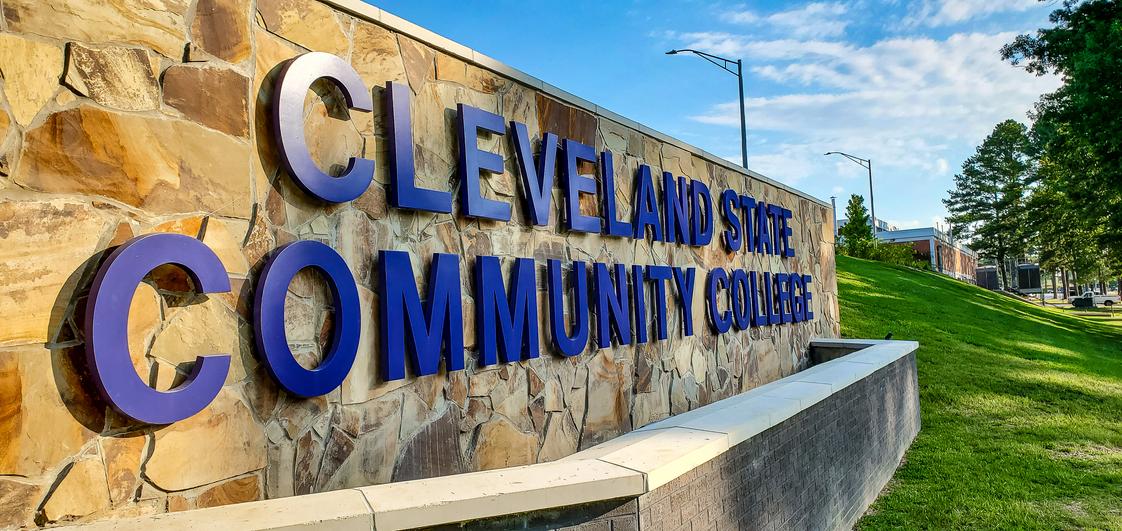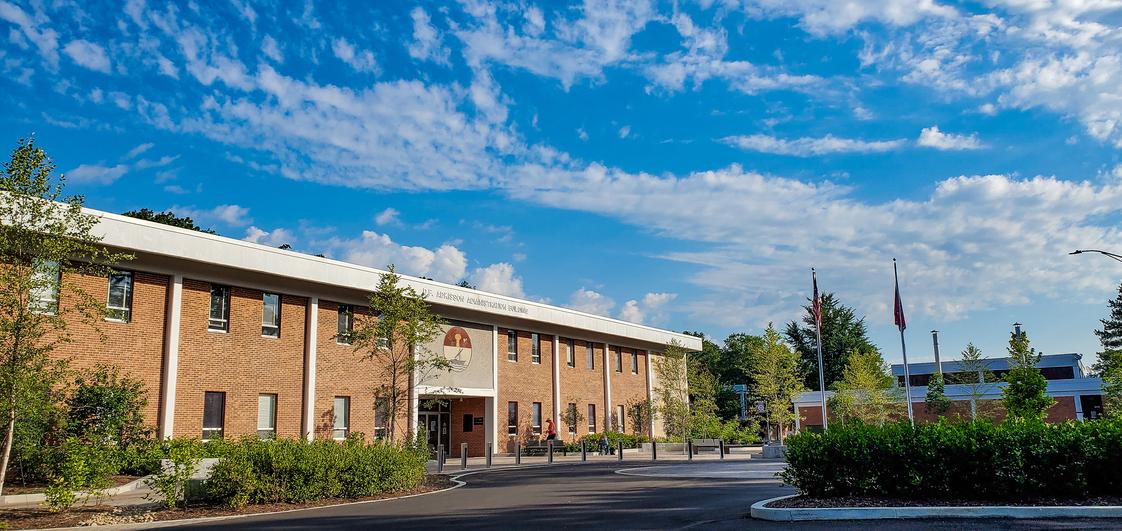- Cleveland State Community College is an accredited public community college serving approximately 3,500 credit students and 1,500 non-credit students. Committed to quality education, Cleveland State operates within the governance of the Tennessee Board of Regents.
School Highlights
Cleveland State Community College serves 3,865 students (45% of students are full-time).
The college's student-teacher ratio of 16:1 is lower than the state community college average of 18:1.
Minority enrollment is 19% of the student body (majority Hispanic), which is less than the state average of 45%.
Quick Facts (2026)
- Enrollment: 3,865 students
- In-state tuition: $4,400
- Out-state tuition: $17,216
- Acceptance Rate: 100%
- Student-teacher ratio: 16:1
- Minority enrollment: 19%
- Source: Verified school update
School Overview
The teacher population of 248 teachers has stayed relatively flat over five years.
Cleveland State Community College
(TN) Community College Avg.
Carnegie Classification
Associate's Colleges: High Transfer-High Traditional
Not applicable, not in Carnegie universe (not accredited or nondegree-granting)
Institution Level
At least 2 but less than 4 years
At least 2 but less than 4 years
Institution Control
Public
Public
Total Faculty
248 staff
152 staff
School Calendar
Student Body
The student population of Cleveland State Community College has grown by 25% over five years.
The student-teacher ratio of 16:1 has decreased from 32:1 over five years.
The Cleveland State Community College diversity score of 0.33 is less than the state average of 0.65. The school's diversity has grown by 38% over five years.
Total Enrollment
3,865 students
699 students
Student-Teacher Ratio
16:1
18:1
# Full-Time Students
1,725 students
426 students
# Part-Time Students
2,140 students
273 students
# Enrollment Undergraduate
386 students
504 students
# Full-Time Undergraduate Students
1,725 students
426 students
# Full-Time Graduate Students
n/a
12 students
# Part-Time Undergraduate Students
2,140 students
335 students
# Part-Time Graduate Students
n/a
12 students
Total Dormitory Capacity
n/a
195 students
% American Indian/Alaskan
n/a
n/a
% Asian
1%
4%
% Hispanic
8%
6%
% Black
6%
19%
% White
81%
55%
% Hawaiian
n/a
9%
% Two or more races
2%
3%
% Non Resident races
n/a
1%
% Unknown races
2%
3%
Diversity Score
0.33
0.65
College Completion Rate (Students who graduate in less than 4 years)
29%
60%
College Completion Rate (Students who graduate in 4 years or more than 4 years)
n/a
52%
Average Graduate Earnings (10 Years)
$31,100
$29,000
Tuition and Acceptance Rate
The public in-state tuition of $4,400 is less than the state average of $5,176. The in-state tuition has stayed relatively flat over four years.
The public out-state tuition of $17,216 is more than the state average of $15,746. The out-state tuition has stayed relatively flat over four years.
In-State Tuition Fees
$4,400
$5,176
Out-State Tuition Fees
$17,216
$15,746
% Students Receiving Some Financial Aid
98%
97%
Median Debt for Graduates
$8,000
$11,059
Median Debt for Dropouts
$5,250
$5,000
Acceptance Rate
100%
92%
SAT Reading
n/a
415
SAT Math
n/a
455
SAT Writing
n/a
469
ACT Total Avg.
56
58
ACT Composite
19
20
ACT English
19
19
ACT Math
18
19
Sports
Total Sports Offered
6 sports
Sports
BaseballBasketball
CheeringGolf
SoftballVolleyball
Extracurriculars
Total ExtracurricularsTotal Extra-curric.
7 extracurriculars
ExtracurricularsExtra-curric.
Club or Organization:
Arts and Music Programs:
Recreational Athletic Programs:
Multiple Clubs and OrganizationsPhi Theta Kappa Honor Society
Arts and Music Programs:
Chamber Choir and Vocal Rhapsody
Recreational Athletic Programs:
CheerleadingIntramural dodge ball
ping-pongpool
Source: 2024 (or latest year available) Integrated Postsecondary Education Data System (IPEDS) , School Administrators
School Notes
- Cleveland State Community College, a two-year institution within the Tennessee Board of Regents System, provides accessible, responsive, and quality educational opportunities primarily for residents of southeastern Tennessee. The College delivers developmental education, university transfer programming, workforce training, and community services. By engaging students in the learning process, the College aspires to promote success, enhance quality of life, and encourage civic involvement. The College strives to be a responsible partner in lifelong learning for the individual and in economic development for the region.
Frequently Asked Questions
How much does Cleveland State Community College cost?
Cleveland State Community College's tuition is approximately $4,400 for In-State students and $17,216 for Out-State students.
What is the acceptance rate of Cleveland State Community College?
The acceptance rate of Cleveland State Community College is 100%, which is higher than the state average of 92%.
What sports does Cleveland State Community College offer?
Cleveland State Community College offers 6 interscholastic sports: Baseball, Basketball, Cheering, Golf, Softball and Volleyball.
Recent Articles

Community College vs. Bootcamps for Tech Careers in 2026
Community college vs. bootcamps in 2026. Compare cost, outcomes, credentials, and hiring trends to choose the best tech career path.

How to Build a Class Schedule That Fits Your Life (Spring 2026)
Learn how to build a class schedule that fits your life with expert tips, updated strategies for Spring 2026, and practical planning tools for students and families.

Top 10 Jobs for Community College Graduates in 2026
Meta Description: Discover high-demand jobs for community college graduates, with current salary trends, costs, and career pathways.















